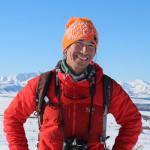Meq unguvatkarput (water is our livelihood) - building community resilience for the future
Coastal delta communities are among the most vulnerable to climate change, causing most communities to wonder what their lands and waterways will look like in decades to come. State of Alaska reports identify villages of the Yukon-Kuskokwim (YK) Delta as underserved with respect to basic government services and highlight areas threatened by sea level rise, coastal erosion, flooding, and permafrost degradation. Likewise, communities and traditional ways of life are threatened by sea level rise, salinization, and storm surge because of the low elevation of the delta. Additionally, the decrease in duration and extent of coastal sea ice has contributed to greater storm impacts increasing the vulnerability of the YK Delta to coastal hazards. These changes are forcing Alaskan Native communities to face new realities in their day-to-day lives. Changes in the water cycle driven by climate change are generating risks to health, sanitation, and infrastructure. Populations living in rural villages in the YK Delta region experience challenges in the quality, accessibility, and reliability of drinking water and sanitation services. These effects are exacerbated by changes in climate and water budgets that are increasingly influencing water cycles in the Arctic. As communities, like Kongiganak and Mekoryuk navigate the changing Arctic together, it is essential to chart a course that holistically considers the physical and human dimensions of these new realities.
This research will: evaluate near-term and far-term prospects of providing safe, affordable, resilient, and locally acceptable drinking water, sanitation, and hygiene services in the context of environmental change (erosion, permafrost thaw, and flood hazards); measure, quantify, and model rates of landscape change and altered hydrology caused by rising sea level and the collapse of permafrost across the built environment and landscapes used for traditional livelihoods; utilize new baseline hydrographic data collected with community partners through bathymetric surveys, water level gauges, and coastal wave buoys to develop high-resolution 3D hydrodynamic models of storm surge flooding delivering predictive flood hazard maps and workflows for other communities; develop the first estimates of water/sanitation-related coping costs for rural Alaskan communities and quantify benefits/costs of various water/sanitation-service delivery models under different landscape and climate scenarios; co-develop community-based monitoring programs that allow for determination of how current rates of environmental change compare to historical trends and Indigenous Knowledge observations. We will document effective convergent workflows/co-production techniques to be applied broadly in the YK Delta and beyond where the same challenges of rapid climate change are playing out.
This award reflects NSF's statutory mission and has been deemed worthy of support through evaluation using the Foundation's intellectual merit and broader impacts review criteria.


